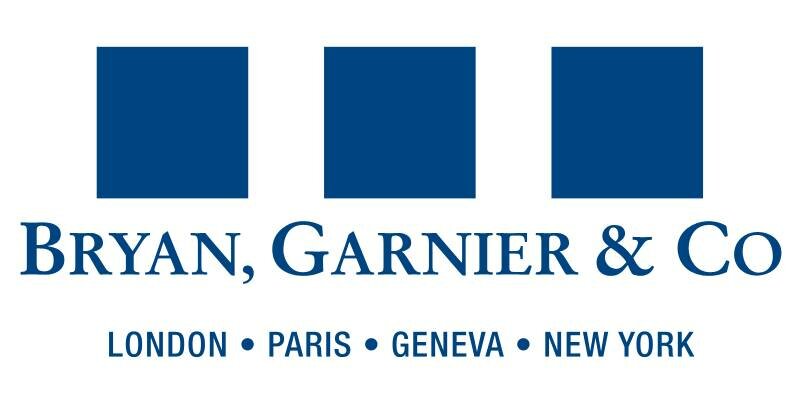Initial Public Offerings tend to become a real alternative for more and more European biotech companies. In Wallonia (Belgium), several SMEs (such as Mithra Pharmaceuticals) are seriously considering this option while companies such as Celyad, Bone Therapeutics or VolitionRx have been successfully listed on Brussels, Paris and New York stock exchanges (raising around EUR 67 million in total between 2013 and 2015).
Following a special IPO seminar organized by BioWin on May, 6th, Cédric Moreau, Director – Healthcare at Bryan-Garnier & Co and Thierry Hazevoets, Partner at Merodis, bring a cross-analysis over the interest for Walloon biotech and medtech SMEs to take (or not) their chance on the stock market.
Can all biotech companies launch an IPO?
CM – An IPO has to be assessed in the perspective of an acceleration of the strategy for a company – So as a prerequisite a biotech company could be eligible once a proof of concept has already been achieved, validating the technology and ideally with already interests from industrial through collaboration/licensing agreements. On the contrary, a biotech company at an early stage of its development (ie: Pre-clinical / Ph1) are usually not enough mature to go public.
TH – Before getting excellent results on proof of concept, and unless the biotech would be granted an orphan status for its most advanced projects, I would not recommend to proceed to an IPO but would clearly keep the company private, and select investors which can bring a particular expertise to the company.
We talk a lot about cell therapy companies’ IPOs. According to you, which technological areas are of specific interest to investors? Why?
CM – Absolutely, cell therapy is a hot space currently mainly thanks to the very promising data achieved by the CAR-T cell therapy in the oncology field. In Europe, Belgium cell therapy companies are particularly well positioned and among the most advanced in terms of development and manufacturing capabilities. Gene therapy is also an area of interest with strong expectations and potentially the next hype for the industry.
TH – Definitely the genome part of the sector has returned: Gene, cell therapy and molecular diagnostics are making breakthrough findings and proving their viable business propositions. Especially molecular diagnostic seems to make a push forward but is still hampered by pricing and reimbursement discussion. In the therapeutic area, Bluebird Bio is perhaps the best example. The company has confirmed that it was on its way to curing a meaningful percent of Sickle Cell Disease patients. This increased visibility has pushed the shares 6 times higher in a six month time frame. Talking about a confidence booster…
What is your analysis of the biotech stock market bubble predicted by some financial experts?
CM – Nasdaq biotech index surged 2 years ago and is now beating records but the US market is very rich and deep offering a large spectrum of opportunities for investors. Europe is more a follower market, the reason why more and more European companies are thinking about a US listing. Galapagos recently experienced this successful move with a record USD317 MM fund raising.
TH – The strong performance of the biotech index, which did not come as a surprise to us, has its origin in relatively poor performance in the post-crash area of 2008. Until 2011, biotechnology – as part of healthcare sector – was not perceived as a sector of interest by the main street investors. Their focus was on more cyclical sectors that could benefit from the revival of the economy, leaving the profitable biotechnology companies at very cheap valuations. This strong rally was inspired by a return of the main stream investors to less economic sensitive sectors, driven by the search for high visibility on cash flows. Individual success stories (like innovative hepatitis drugs of Gilead) in the biotech sector did the rest. Valuations seem to be at the high end now and will probably come down when the focus on more cyclical sectors return.
Is it more interesting for companies to be listed on the European or on the international stock markets? What are the main difference between European and US stock market for instance?
CM – The US standards are higher than the European ones in terms of Documentation/Disclosure, Reps & warranties, reporting and compliance. That said, the Jobs Act allowed recently more companies (including European ones) to be listed as the Sarban-Oxley act was particularly restrictive. Also the process and the structuration of an IPO transaction is not exactly the same on the both side of the Atlantic.
TH – European markets, through Euronext, is in my opinion the first step. A listing in the US is an attractive option in order to get exposure to the most important market in the life sciences area. It is also a market with more sophistication and understanding of biotech projects, but it is costly and requires particular skills and experience.
What are the top 3 pro and cons of the IPO?
CM – For Pros, Business expansion & Development, Visibility/ credibility towards partners and clients and higher valuation usually observed in public markets. Regarding Cons is the Exposure & Vulnerability to market conditions, Time consuming for the management and disclosure obligations that could reduce strategic room for maneuvering. All in all, it’s a transforming project for a company that has to be well assessed and prepared.
TH – Top 3 plus are: size (easier to finance large amounts through IPO), credibility/perception and liquidity for investors, allowing SOPs and also paying acquisitions through the emission of shares. Negative points include the cost (fees but also management time for the IPO and afterwards), the vulnerability to fast changing and capricious market moods that can have disastrous consequences on confidence levels, and the fact that you disclose lots of information to competitors.
Contacts
 Cédric Moreau Cédric MoreauDirector – Healthcare Bryan Garnier & Co. |
 Thierry Hazevoets Thierry HazevoetsPartner Merodis |



















